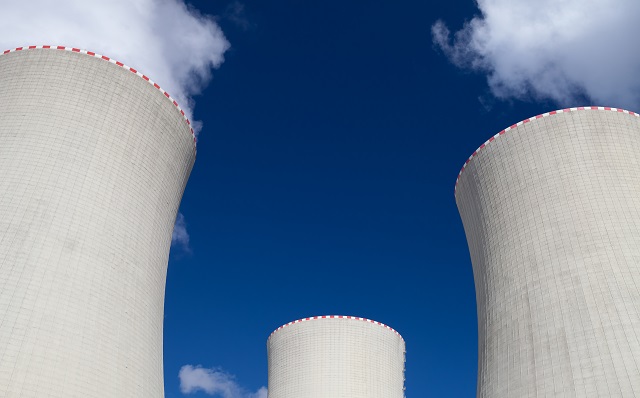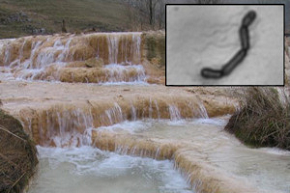
Image Credit: kref/Shutterstock.com
University of Manchester researchers have found bacteria that can endure extreme conditions of radioactive waste disposal sites in soil samples obtained from a highly alkaline industrial site located in the Peak District.
Nuclear waste disposal is a challenging process involving burial of waste deep underground. Radioactive waste is encased in large tanks in concrete, called the intermediate level, before being disposed into underground vaults.
When these waste materials make contact with ground water, they create a highly alkaline environment by reacting with the cement. These chemical reactions cause different cellulose-based materials to appear in the waste and start to break down, yielding products such as isosaccharinic acid (ISA).
 The bacterium (inset) was found in soil samples in the Peak District (Image Credit: University of Manchester).
The bacterium (inset) was found in soil samples in the Peak District (Image Credit: University of Manchester).
The ability of ISA to react with radionuclides is a problem. The bonding of ISA increases the solubility of radionuclides.
This, in turn, allows the radionuclides to leak from the underground vaults to reach the surface, thereby contaminating the food chain and drinking water. This problem could be avoided with the help of this newly found “extremophile” bacteria.
Besides thriving in the highly alkaline environment, the microbes consume the ISA for food and energy in an environment resembling the conditions of an intermediate level nuclear waste disposal site. They can change their metabolism in anaerobic conditions, using chemicals such as iron and nitrate in the water for breathing.
The Manchester team explored the unusual diet habits of these single-cell microorganisms to find a solution for nuclear waste disposal in a safe manner. According to Professor Jonathan Lloyd, a one of the researchers, finding the impact of these bacteria on radioactive materials is the next stage of development.
The Multidisciplinary Journal of Microbial Ecology features the study results.